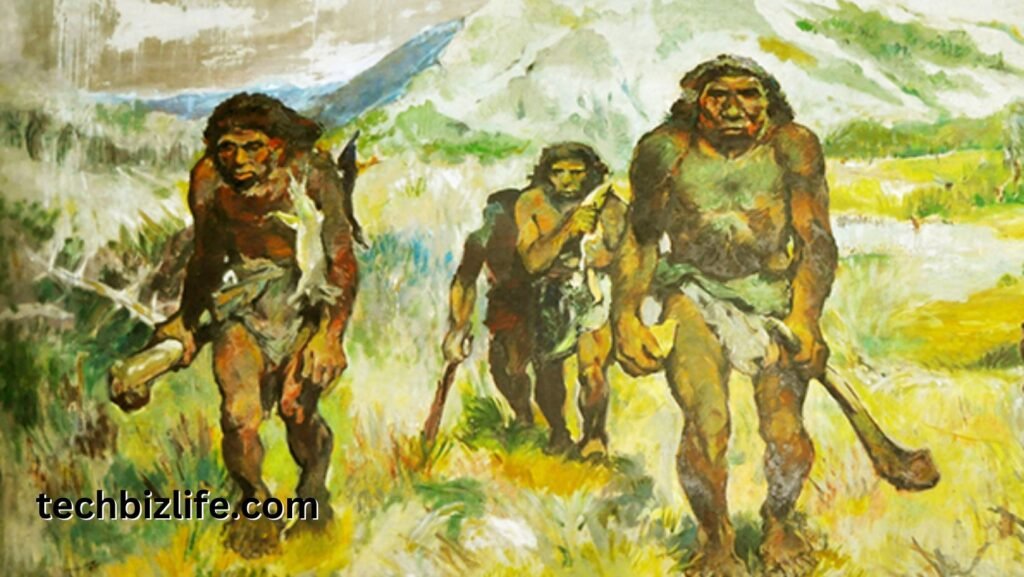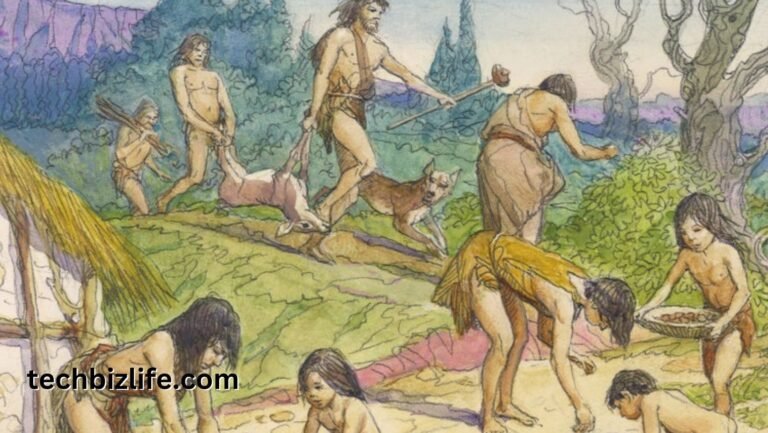Disadvantages of humans straying away a hunter-gatherer lifestyle the shift from a hunter-gatherer life to settled agricultural societies has been one of the most significant shifts in human history. Though this shift led to the evolution of civilizations, cities, and modern technology, it also brought along several disadvantages. This article will discuss some of the negative impacts of shifting away from the hunter-gatherer lifestyle, including health decline, loss of social cohesion, environmental degradation, and more. But by analyzing these effects, we can better understand how this shift has shaped the world that we live in today.
Key Takeaways:
- Health Decline: Humans moving away from a hunter-gatherer lifestyle have experienced significant declines in overall health, including increased rates of obesity, heart disease, and diabetes.
- Loss of Social Cohesion: The shift from tight-knit, communal living to more individualistic societies has weakened social bonds and increased isolation.
- Environmental Damage: Industrialization and farming have led to deforestation, soil degradation, and loss of biodiversity, which would not have occurred in a hunter-gatherer society.
- Nutritional Deficiency: The transition to agriculture has resulted in a less varied diet, leading to nutrient deficiencies and long-term health issues.
- Psychological Impact: The detachment from nature and the rise of sedentary lifestyles have contributed to increased mental health problems, including stress, anxiety, and depression.
- Dependency on Technology: The reliance on technology in modern society has made humans less resilient and self-sufficient, a trait honed during the hunter-gatherer period.
- Increased Workload: With the advent of farming and industrialization, work has become more monotonous and labor-intensive, leading to a decrease in quality of life.
What Are the Major Disadvantages of Straying Away from a Hunter-Gatherer Lifestyle?
Decline in Health
- One of the major negatives of leaving the hunter-gatherer lifestyle is that there is a decline in human health. Early humans had diets rich with fruits, vegetables, meats, and fish, which gave them a wide variety of nutrients. However, with the arrival of agriculture, the diet depended more on staple crops, such as wheat, rice, and corn. This made many people sick.
- As the contemporary human compares to the primitive hunter-gatherer, chances of diseases like obesity, cardiovascular diseases, and type-2 diabetes occur frequently. The study by American Heart Association reveals that ever since this period, a remarkable growth of heart disease among people was observed.
Also Learn More: disadvantages of humans straying away a hunter-gatherer lifestyle

Loss of Social Cohesion
- The social structure of the hunter-gatherer societies usually tended to be based on small close-knit groups where mutual cooperation and support were the very essentials for survival. People would stay in small bands together, sharing their resources, and they worked for a common cause, thus establishing close bonds of society and a community.
- However, the development of farming and the emergence of stable settlements made the larger, ranked communities. As anthropologist Christopher Boehm put it, transitioning from egalitarianism to stratified social structures meant reducing the bonding force among human members. Social isolation and individualism have become typical concerns; there is an increasingly deformed community character with this loss of a homogenized social hierarchy that earlier used to tie communities.
3ental Damage
- The environmental impact of living away from a hunter-gatherer lifestyle has been profoundly significant. Hunter-gatherers, in fact, lived in harmony with their surroundings, relying on the natural cycles of the environment for food, water, and shelter. Their methods of food procurement did not cause depletion of resources, which meant they maintained a sustainable balance with nature.
- In contrast, the rise of agriculture led to deforestation, soil degradation, and loss of biodiversity. Farming practices like monoculture (growing a single crop over large areas) have contributed to soil depletion and erosion. According to the United Nations, deforestation rates have accelerated dramatically since the onset of agriculture, leading to significant ecological imbalance.
- These include ecosystem damage, which means decreased fresh water, collapse of fish, and several other extinct species. Moreover, the recent agriculture industry is one of the primary causes of greenhouse emissions; hence, it remains the primary cause of climatic changes.
Malnutrition
When humans became agricultural, their diet consisted of a few staple foods, including wheat, rice, and corn. It had fewer calories and very less nutritional density than the kinds of food hunter-gatherers were consuming. Eventually, early agricultural societies came to suffer from nutritional deficits.
This shift contributed to diseases such as scurvy, rickets, and anemia, which were relatively rare in hunter-gatherer populations. In the modern world, poor diet continues to be a major cause of malnutrition, despite the abundance of food. According to a study by the World Health Organization, micronutrient deficiencies (e.g., iron, vitamin A, and iodine) are still widespread, particularly in developing countries.
Also Learn More: disadvantages of humans straying away a hunter-gatherer lifestyle
Psychological Impact
- A sedentary lifestyle is something that is common in the contemporary world, and this tends to have severe psychological implications. Compared to the physically active lives of hunter-gatherers, most people live indoors today, with significant portions of their lives being spent in front of a screen. This separation from nature and physical activity has been linked to increased problems with mental health, such as stress, anxiety, and depression.
- Studies suggest that the pace and constant connectivity in this modern world have become the major sources of mental health struggles. In fact, a study done by the American Psychological Association has discovered that the growing levels of mental health disorders have resulted from urbanization and industrialization.
- Moreover, modern society’s addiction to material goods and social position can lead to unhappiness and alienation. By contrast, many hunter-gatherer groups tended to prioritize communal living, shared experience, and self-reliance, all of which contributed to higher psychological well-being.
Technology Dependency
Advances have been made with the help of technology, but technology has also rendered man more reliant on tools, machines, and systems in modern society. In the hunter-gatherer society, humans used to rely upon their muscles, resourcefulness, and cooperation to get by. It has provided comfort and ease to man in the times of technology, but it also makes him weaker at the point of crisis.
During natural disasters, pandemics, or societal collapse, the loss of technological infrastructure can be quite devastating. The dependency on global supply chains and complex systems for basic needs such as food, water, and energy is in contrast to the self-sufficiency of hunter-gatherer lifestyles.
Increased Workload and Monotony
Disadvantages of humans straying away a hunter-gatherer lifestyle In pre-agricultural societies, work was diverse and aligned with the rhythms of nature. People had time to hunt, gather, and participate in social life. The work was always physically demanding, but diverse, and people had greater autonomy over how they chose to spend their time.
Agricultural and industrial societies have brought in monotonous, repetitive work schedules. In fact, the industrial revolution led to increased labor demands and a more rigid work schedule, often in factories or offices. Modern workers are known to experience high levels of job stress and dissatisfaction because of the nature of their work.
Also Learn More: disadvantages of humans straying away a hunter-gatherer lifestyle
FAQs

How did the hunter-gatherers maintain health?
Disadvantages of humans straying away a hunter-gatherer lifestyle the hunter-gatherers managed to keep healthy by maintaining a diet diversified with fruits, vegetables, and animal products. Their busy lifestyle added to their physical fitness.
Did the early agricultural societies suffer from more health issues?
The early agricultural societies suffered nutritional deficiencies, more diseases, and sedentary lifestyles with increased health issues.
How did the shift to agriculture impact the environment?
The shift to agriculture led to deforestation, soil degradation, and loss of biodiversity as humans began tomanipulate the land for farming.
What are the psychological effects of living in modern societies?
Disadvantages of humans straying away a hunter-gatherer lifestyle modern societies, with their sedentary lifestyles and constant stress, contribute to mental health problems such as anxiety, depression, and social isolation.
Can we go back to being hunter-gatherers today?
While it is impossible to return to a full-time hunter-gatherer lifestyle in the modern world, some people are looking for a balance by embracing more sustainable living and reconnecting with nature.
Conclusion
Disadvantages of humans straying away a hunter-gatherer lifestyle from staying out of the hunter-gatherer lifestyle, humans have drastically affected health, society, and the environment. Through modern society, humans got improved technology and higher productivity rates, but these were attached to a number of the problems such as bad health, environmental degradation, and psychological problems. From there, we can strive and create a better future to help us balance the hunter-gatherer past and face the modern challenges


